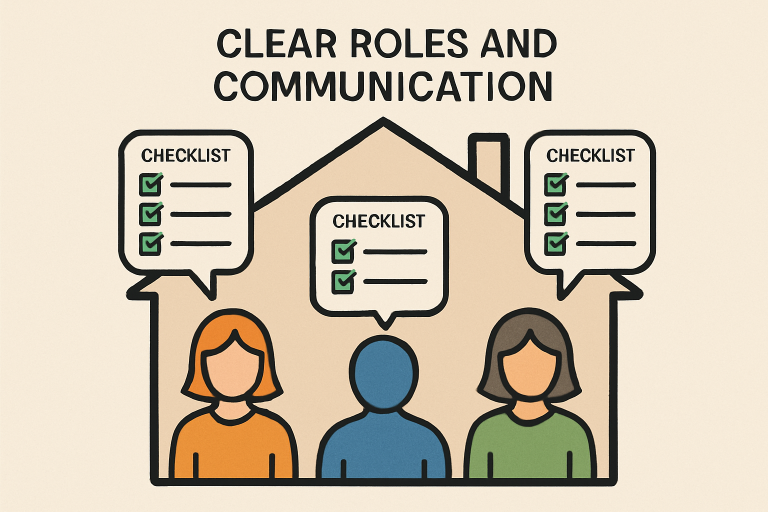Why Expectations Matter in Staffing
Establishing clear expectations is fundamental to running a well-organized household. Defining roles, responsibilities, and boundaries ensures staff and employers know what to anticipate, paving the way for a harmonious work environment. A household where each member understands what is expected will likely be more productive and experience fewer misunderstandings or conflicts.
Utilizing professionals, such as those found through a domestic household employment agency Los Angeles, can help ensure sophisticated, clear, and effective staffing solutions. These agencies often offer expert advice on drafting robust job descriptions and assisting both households and staff in aligning their expectations from the outset.
Common Challenges in Managing Household Teams
Household staffing presents unique challenges due to schedules, privacy needs, and cultural differences. Unclear reporting structures can lead to missed tasks, duplicated efforts, and inconsistent instructions, causing staff to feel uncertain and undervalued. Misunderstandings can escalate tension and affect household safety. Balancing professional boundaries with a familial atmosphere is a common challenge, as unclear guidelines can blur lines and leave staff unsure whether concerns are supportive or evaluative.

Creating Effective Guidelines for Household Staff
Shifting from informal instructions to well-documented guidelines fosters a culture of transparency and reliability. A household manual or formal job description eliminates ambiguity, ensuring each team member knows their responsibilities, daily tasks, and emergency escalation procedures. These tools can include operational checklists, housekeeping standards, schedules for maintenance or events, and specific emergency protocols—all customized to the family’s values and routine.
Guidelines must be reviewed and updated regularly. As family needs evolve, new tasks may arise, requiring revisions to keep practices relevant and effective. This ongoing refinement helps maintain alignment between staff duties and family expectations.
Establishing a Clear Onboarding Process
A clear onboarding process is essential for a successful employment relationship. It involves familiarizing new hires with daily duties, the household’s culture, values, and communication methods. An effective program includes a comprehensive orientation, detailed introductions, review of manuals and guidelines, and initial feedback and support. This approach helps new team members feel welcomed and supported, fostering growth.
The Role of Training and Development
Training and development are crucial for staff to stay prepared and engaged, boosting morale and job satisfaction. Organizations prioritizing ongoing education, such as workshops, online learning, and external certifications, see higher team retention and loyalty. These efforts demonstrate that the household cares not only for its operations but also for its staff’s professional growth and confidence.
Maintaining Productive Feedback Loops
Constructive feedback is crucial for effective household management. It allows employers to praise and guide staff and express their perspectives. Open communication through performance reviews or informal one-on-ones helps identify problems early and celebrate successes. Two-way feedback addresses issues before they become contentious, acknowledging achievements and creating a workplace where staff feel appreciated and heard.
Legal and Ethical Considerations
Proper staffing requires a thorough understanding of employment laws and ethical standards. This includes adherence to wage and hour regulations, overtime requirements, health and safety mandates, and privacy obligations for employers and staff.
Fair policies foster trust, reduce risk, and ensure dignity and respect for everyone involved in the household team—setting the tone for honest and ethical working relationships. These policies should incorporate any statutory rights regarding holidays, breaks, etc., as well as any confidentiality mandates or codes of conduct you have in place.
You should also seek liability insurance to cover the cost of any employee injuries that happen within your household. As well as improving workplace trust and relationships, this precautionary measure ensures you can provide ample compensation to employees should accidents occur. That way, they’re less likely to seek the protection of a third-party injury lawyer, and may even return to your employment once they’re fully recovered.
Closing Thoughts
Adequate household staffing goes beyond hiring the right people—it requires clear expectations, consistent communication, and a commitment to fairness. When guidelines, training, and feedback systems are in place, households foster trust, professionalism, and long-term harmony between employers and staff.

